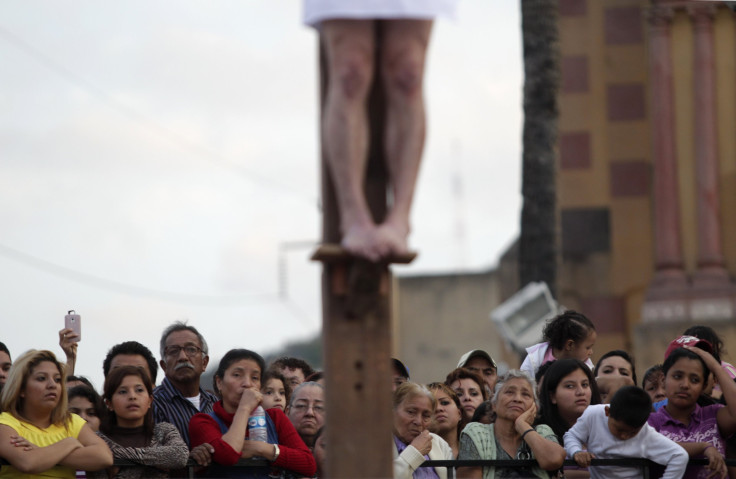Mexico Shrugs Off 7.2 Earthquake, But Can't Toast To Survival Due To Alcohol Ban For Holy Week

MEXICO CITY -- Mexico woke up Friday with a shake: A magnitude 7.2 earthquake, to be precise, with the epicenter just north of Acapulco, that was felt all over the country's southern states and up to Mexico City. Most of the country barely felt it -- there were no injuries or material losses -- and people went on with the day, shrugging off another one of Mexico's many quakes. I was not as unfazed.
As a European transplant to the Mexican capital, I am not used to the feeling of the earth rocking under my feet. I grabbed my passport and ran to the designated safe area outside my apartment, just as the quake was subsiding. After a few “are you ok?” texts with my local friends, most of whom are also recently arrived expats, we all rejoiced in having lived through our first Mexican earthquake, and it was quickly suggested that we toast to our survival at Friday's happy hour.
Except we could not. Due to Holy Week, from Holy Thursday to Easter Sunday, the local government had imposed an alcohol ban in most of Mexico City. The measure, introduced for the first time ever this year, was announced on Tuesday, to roaring complaints from restaurants, bars and retailers.
The local government said that the measure was implemented for safety reasons, to “protect those who take part in the festivities.” After much lobbying from the service industry and unions, the ban was lifted for restaurants and bars far from the center and any spots where Holy Week events were taking place. Most of the city, however, remained scorchingly dry.
This is the first time this has happened in Mexico, but in several parts of Latin America, prohibiting alcohol during the biggest Catholic holiday is common practice. Countries such as Colombia, Honduras and Venezuela have also adopted the measure, with different degrees of success.
2014 is the first year Colombia has applied the measure. It will affect most of the regions on the Atlantic coast, including the city of Barranquilla. Public opinion there was divided between those who considered the holiday a reason for respect and those who were worried about how it would affect businesses.
“These are solemn days, and many people do not respect the Lord's days,” said Alfredo Marchena, resident of Soledad, one of the provinces that observe the ban. “We need to prevent disorder and debauchery.”
Venezuela and Honduras have had the ban for several years. Several liquor retailers protested the measure in Caracas, arguing that it affects 1.2 million people who work in the industry. But in the city of San Pedro Sula, Honduras, the measure was widely accepted.
On the other hand, Costa Rica, which traditionally observes a yearly alcohol ban around Holy Week, has decided not to impose the ban this year. The spike in tourism around this time has prompted the government not to limit the sale of liquor for fear that it would hurt the industry.
Holy Week is, for much of Latin America, the biggest holiday of the year. The region is the area of the world with the densest concentration of Catholics, with 39 percent of believers living in Central and South America. Mexico, Colombia and Brazil are the countries with the largest Catholic populations, with 85, 82 and 65 percent Catholic, respectively, according to numbers from the Pew Research Center.
This year, Mexico saw 800,000 people traveling for the holidays, with the coast city of Acapulco experiencing 96 percent hotel occupancy.
Acapulco was, incidentally, where the epicenter of the earthquake was located, prompting moments of terror that ended quickly when it became clear there had been no personal or material losses.
Earthquakes are not unusual in Mexico, due to the country being located at the juncture of three tectonic plates. The Servicio Sismológico Nacional (Mexican Seismic Service) keeps predicting that a large earthquake -- over 8 on the Richter scale -- will hit Mexico in the next decade.
Experts advise the population to have a survival kit ready in case they have to run out of their apartments. The kit should include water, ID and a flashlight. I will just make sure mine includes a full flask -- just in case.
© Copyright IBTimes 2025. All rights reserved.





















